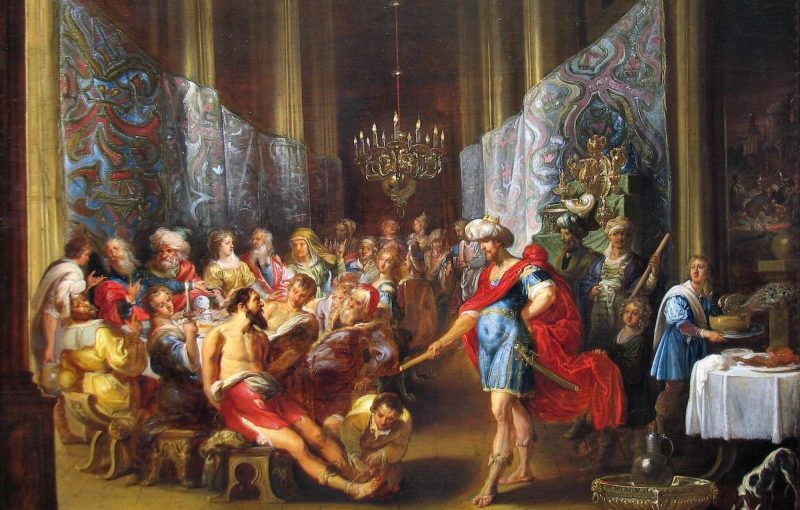This morning’s Gospel parable is admittedly a bit of a head scratcher. It almost seems to portray our God in a rather unfavorable light, comparing him to a capricious king who destroys whole cities after being snubbed by some invited guests, and then tosses out a visitor who seems to have come to the banquet poorly dressed. But obviously, that surface-level reading of the parable is inadequate, and so we have an invitation to read perhaps a bit deeper.
Put very plainly, the banquet is the Eucharist, given for all. The wedding is the marriage of God with his people, which makes us one with him and opens up the possibility of eternity for those who accept it. Those guests who refused to come were the leaders of the Jewish people, who should have been looking for the feast and should have welcomed it with eager longing. But instead they mistreated and murdered the servant-messengers, who were the prophets who announced God’s reign and helped forge the covenant.
Those then who were pulled in off the streets to share in the banquet are everyone else who hears the Word of God and responds to it. The guest thrown out for improper attire are those who accept the invitation of Christ with their lips, but remain clothed in the filthy garments of worldly desire and ambition instead of giving themselves to the marriage completely.
So, if it’s not already obvious, we are among those pulled in off the streets. We have heard the Word of God and know his desire to be one with us. The question is, what kind of garments have we been wearing? Are we clothed in that white garment of pure desire for God that is given us in Holy Baptism, or have we cast that beautiful vesture aside for the filth of the world? If it’s been the latter, filthy garment we have been wearing, today’s message is that it is time to wash them white in the Blood of the Lamb, the one who came to give his life that we might be wedded to him for all eternity.
